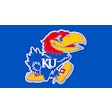Yale University, among the schools implicated in the nationwide admissions scandal, admitted students whose families endowed coaching positions or athletic programs in at least half a dozen cases, according to a review by The Boston Globe.
In some instances, the children also would play on teams led by the very coach whose position or athletic program the parents had endowed, a review of publicly available records found.
As presented by three Globe reporters sharing the byline, "It’s right there on the Yale University website: For a cool $2 million, donors can endow a coaching position, essentially supporting the coach’s salary forever. The endowments for the top jobs in baseball, volleyball, gymnastics — they are all for sale.
"Perks for donors include a plaque in the sports office, and the chance to name the endowment after one’s family, or to honor someone else, including the current coach. 'The possibilities are endless,' touts Yale’s athletic department site."
Related: Yale Takes Steps to Shore Up Recruitment, Admissions
As examples of what might constitute a pay-to-play system in the eyes of some, the Globe mentions that a Dedham, Mass., couple endowed the Yale women’s soccer coaching position in 2013, the same year their daughter transferred from Georgetown University and made the Yale Bulldogs team her sophomore year. Another couple, from New York, helped endow the men’s lacrosse coach, and within a few years, their son was enrolled at Yale and playing for the team whose coach’s salary the endowment was supporting. Another family endowed a fund to cover certain costs of the Yale men’s golf team, a lesser-priced option listed on the school’s website at $100,000. Their son was soon enrolled at Yale and joined the golf roster.
Yale says all students are admitted on their own merits, including the athletes whose parents have paid to endow coaching jobs. "Admissions officers will never vote to admit a student who is not believed to be qualified to succeed in both the academic and non-academic life of Yale," spokesman Nathaniel Nickerson said in a statement.
Critics see it as a problematic trend, particularly in the context of the admissions bribery case currently unfolding in a federal court in Boston. "I, as a fair and reasonable person, could see it as quid pro quo," Kevin Fudge, director of advocacy at American Student Assistance, a Boston-based nonprofit that helps students with college financing and careers, told the Globe. "We shouldn’t normalize this, and we should further expose how the business of higher education is run."





































